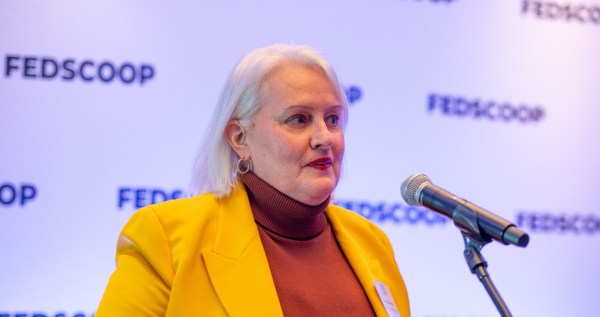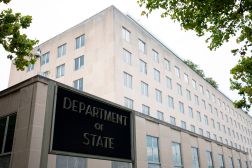Clinton aides could face security hurdles, say lawyers

Though presumptive Democratic president nominee Hillary Clinton will not face criminal prosecution for mishandling classified information, her closest aides — individuals likely to be tapped for top government jobs if she is elected — may still face damaging repercussions, national security lawyers and policy experts tell FedScoop.
As president, Clinton would not require any kind of clearance to access classified information or log on to classified systems. But aides like former deputy chief of staff Huma Abedin and senior policy advisor Jake Sullivan could be denied security clearances in the future given their role in communicating highly secret material over Clinton’s insecure home-brew personal email account, according to Sean Bigley, a security clearance lawyer based in Los Angeles.
“From my personal experience handling hundreds of these security clearance cases per year, if any of these aides were my clients I would simply tell them: ‘Don’t even waste your money,'” trying to contest such a refusal, said Bigley.
“This should not be a winnable case.”
FBI Director James Comey, while recommending no legal action against Clinton, said this week that the former secretary of state and her aides “were extremely careless in their handling of very sensitive, highly classified information.”
He went on to specifically raise the prospect of “security or administrative sanctions” as a possible alternative consequence.
The Department of Justice confirmed the next day that it will accept the FBI recommendation and not seek criminal charges against Clinton, leaving the ball on administrative proceedings squarely in the State Department’s court. The department has already said there will be an internal investigation but given Clinton’s relationship with the organization, some observers are skeptical punishment will be forthcoming.
“In my more than 20 years of handling cases relating to national security, especially with respect to security clearances, I cannot fathom the failure of the State Department to pursue these transgressions aggressively,” veteran national security lawyer Mark Zaid told FedScoop.
Other observers pointed out that the referral to the FBI came not from the State Department, but from the intelligence community, indicating a divergence of opinion about the seriousness of the matter.
“We have already seen a contrast in the positions of the State Department and the intelligence community concerning classification of certain types of information, in which State has disputed certain classification claims,” said Steven Aftergood, director of the Project on Government Secrecy at the Federation of American Scientists and a long-time transparency advocate.
“There may be a similar disparity between State and FBI over what constitutes grounds for suspending or revoking security clearances,” explained Aftergood.
But clearance decisions for the White House jobs Clinton aides would likely be in line for are made by the Executive Office of the President, or EOP — the executive branch agency which staffs the White House. EOP relies on the FBI to perform background investigations, said Bigley.
Across government, EOP is traditionally seen as one of the strictest offices when it comes to issuing security clearances, Bigley said, citing his experience with past and current legal cases that he declined to discuss specifically.
“The million dollar question here, I think, and it’s one that the State Department has consistently refused to answer, is whether any of these individuals retained their clearance after leaving the department,” Bigley told FedScoop, “Obviously, you can’t revoke a clearance if a person doesn’t hold one to begin with.”
“In my opinion, just based on the way they’re handling it, I would say these aides probably still hold top clearances,” said Bigley.
“Some of them likely hold an active clearance, while others may simply retain eligibility [for a clearance] — meaning they are within scope of their most recent background investigation — should access be needed for a matter or employment position,” explained Zaid.
He added, “One would hope that at a minimum the Office of Diplomatic Security, which handles clearance adjudications at the State Department, will have inserted incident reports into each of the relevant individuals’ security files regarding the mishandling of classified information for future adjudication.”
It is possible, Bigley said, that a decision may be delayed until after Clinton assumes the presidency.
The State Department has repeatedly declined to comment regarding the current status of Clinton’s clearance — or those of her aides. Just this week, they did so again when Senate Judiciary Committee Chairman Charles Grassley, R-Iowa, demanded answers about Clinton’s ability to view classified information.
Even once the department’s internal investigation is over, the public is unlikely to know what’s transpired. Only two agencies — the Department of Defense and Department of Energy — disclose rulings made regarding whether a person is granted, denied or has a security clearance revoked.
On Wednesday, House Speaker Paul Ryan sent a letter to Director of National Intelligence James Clapper requesting he deny Clinton access to classified information during the 2016 presidential campaign. Traditionally, party nominees are given national security briefings during the last few months of the race, to ensure they are up to speed for their transition planning effort and can hit the ground running after their inauguration.
Clapper indicated he would continue to honor the tradition of briefing both contenders.




